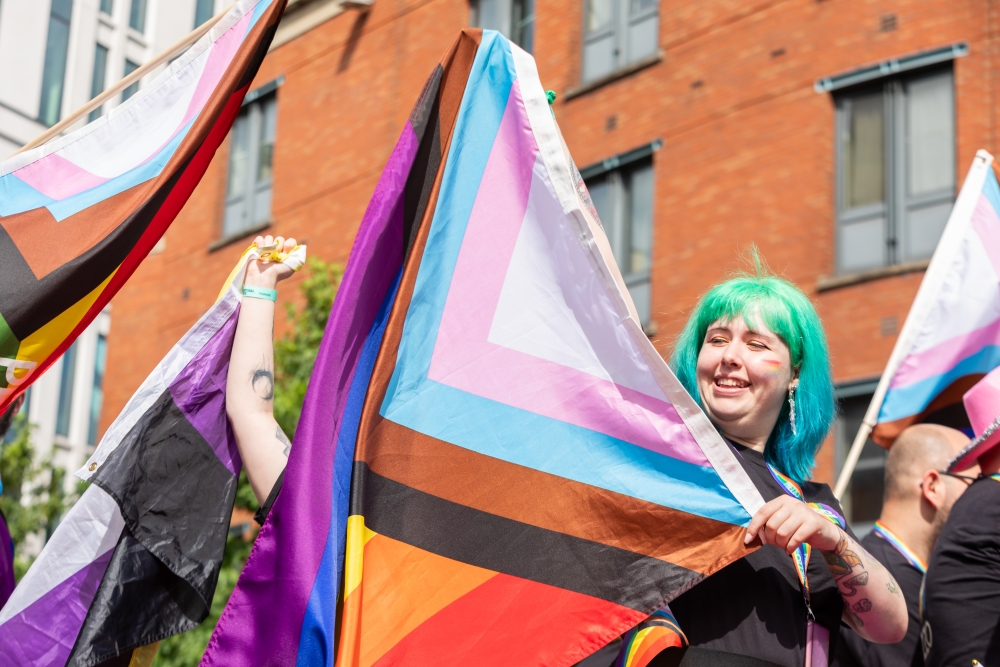
Tell me a bit about yourself.
My name is Jaz, I’m the Community Engagement Officer for Manchester Pride. I am also transgender and neurodiverse. I have ADHD, suspected autism and suspected dyslexia, and I also suffer with general anxiety, depression and dissociation disorder.
How does your intersectional identity inform the way you work?
It has a lot more of an impact than I initially thought it would.
I came from quite an academic background, and so I thought that sitting and writing would be super easy for me. But actually it’s not. In fact, it has an impact on my mental health. The more I’ve come to understand how my brain works, the more I’ve learned how my brain is impacting how I work.
With ADHD, it’s really difficult for me to sit in the same place all day and work on a document. If there’s a big piece of work I tend to need to move around a lot and have different external stimuli in order for me to have the same stimulus in front of me. Also if I’m really stressed then I really hyperfocus on little noises around me. And so the sounds of people drinking or chewing can really grate on me a lot more than other people. I need to be really aware of that. Because I can dissociate, it’s really difficult for me to stay in the room for long periods of time. I need to be able to have something else to do (like doodle or scribble) alongside what’s being said, or I really need to break long meetings up into segments. So if we have a long meeting in the morning, I tend to need to work from home in the afternoon just to make sure my brain doesn’t burn itself out and so I’m not overstimulated by things like office noises.
And then, with being trans, that has a lot more of an impact on my work than I thought it would too. My job is to engage with people, and I’m lucky that a lot of those people are queer, but when they’re not there’s always that minority anxiety where I’m worried about microaggressions or being misgendered and having to advocate for myself in those spaces. And so if we don’t do the formalities that might seem dumb to some people, like introducing our names and pronouns, then all of the sudden that space gets really anxiety inducing because I’m worried people will assume my gender, misgender me and then I’ve got to advocate for myself and have to deal with a situation rather than just have the meeting. And then there’s a secondary aspect because of dysphoria, there are days where just getting to the office and being out in public is all of a sudden really difficult. While I’m lucky I work for a queer organisation, and so I don’t have to think about it a lot, in terms of the journey to and from the office on days where I have a lot of dysphoria, it can take a lot of mental energy for me to just get out of the house. And so there’s that big impact on the start of my day and start of my work in pushing through that mental barrier.
Does your dysphoria and neurodivergence then intersect when it comes to focussing on your work?
Yeah. I’ll wake up, get dysphoria, I then get anxious about it, and then dissociate from that anxiety. And so dissociate away from the present world. And then when I arrive at the office, there’s a great deal of mental effort to bring myself back to the world and into my work.
How does this then inform what you need from a manager?
I think, overall, I’ve been hired into this role because the hiring committee felt I could do this job, and I have passed my probation and proven that I can do my job. And so whether I can or cannot do my job isn’t a question anymore...
